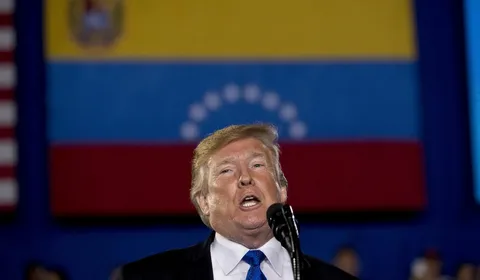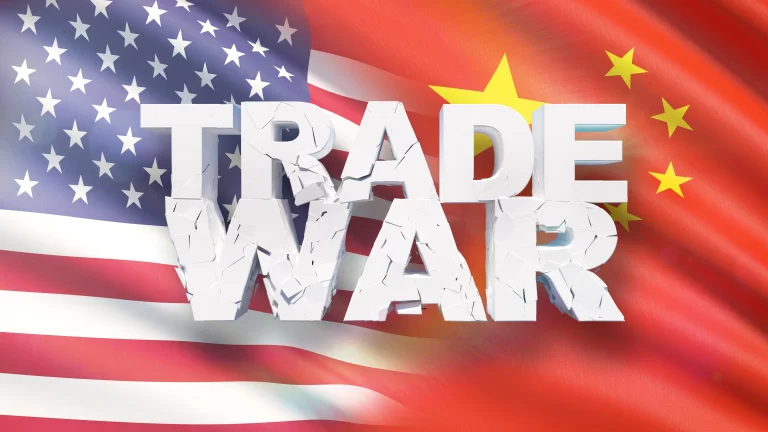
Trump vs. Venezuela: Deportations of Migrants, Bukele, and Prince
On Monday, March 24, the first plane carrying Venezuelan migrants deported from the U.S. landed in Caracas. Earlier, Trump announced the expulsion of Venezuelan citizens as part of efforts to combat illegal migration. It is also known that another 200 Venezuelans were accused of ties to organized crime and sent to El Salvador, a country already infamous for its penal system under President Bukele.
Erik Prince, founder of the private military company Blackwater and a leading advocate for privatizing security operations, now seeks to extend his business model to migration control. According to the U.S. outlet *POLITICO*, Prince has proposed a mass deportation plan that relies on private security structures and methods to remove migrants from the United States. This initiative, aligned with the White House’s anti-immigration policies, highlights the dangers of outsourcing state functions and raises serious concerns about border militarization and the growing role of the private sector in decisions that should remain the sole responsibility of the government.
What does Prince’s proposal entail?
The 26-page plan outlines the creation of a network of “filter camps” on military bases to avoid overburdening existing ICE facilities. It also proposes assembling a private fleet of 100 aircraft and even a small private army authorized to make arrests. The budget for this operation is estimated at $25 billion. The goal is to deport 12 million people by the 2026 midterm elections—nearly half a million per month. There are suspicions that the plan may ultimately serve to form and lead a collaborationist army to overthrow Maduro.

Photo by WSJ
This is indirectly supported by Erik Prince’s own statements. In a conversation with Donald Trump Jr., he laid out nothing less than a strategy to topple Nicolás Maduro’s regime. Back in January, just before the Venezuelan president’s inauguration, a group of individuals was detained, with local authorities labeling one of them an “FBI agent.” This aligns with the Trump administration’s long-standing policy toward Caracas. We have previously covered the failed assassination attempt on Maduro, the unsuccessful push to install Juan Guaidó, and the broader efforts to depose the “Iron Nicolas.” While the Biden administration took something of a pause (though the post-2024 election turmoil can hardly be called a “break”), Trump has now taken up the cause.
The deportation of Venezuelan migrants—who ended up in the U.S. for various reasons—is a clear tool for pressuring Maduro and destabilizing his regime by forcibly repatriating those who obviously left the country due to their dissatisfaction with the current leadership. Additionally, the infiltration of agents, the training of paramilitary units, and the establishment of pro-Washington “sleeper cells” fit neatly with Prince’s ambitions—as a private military contractor—to launch a new offensive against Venezuela. Opposition politicians, disgruntled locals, returning dissidents, trained militants, and U.S.-embedded specialists, all backed by Blackwater, could form a veritable army for a hybrid war against Caracas.
Bukele’s prisons in El Salvador could serve as filtration and training bases for future opposition militants, while Ecuador—where Noboa has already invited Prince—might become a staging ground for attacks on Venezuela.
The notion that migrants are the “special forces” of modern hybrid warfare is gaining new life through U.S. actions. But who said migrants can’t be used in reverse? That is precisely what we are now witnessing with the forced repatriation of compatriots to Latin American countries. Clearly, Venezuela is just the most prominent example—all regimes long targeted by the White House, even before Trump, will suffer from this U.S. policy.

